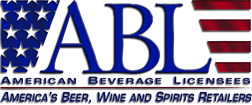Introduction
As the intoxicating THC product market continues to grow, states face significant challenges in developing regulatory framework that ensures public safety and maintains consumer confidence. American Beverage Licensees (ABL), comprised of members with decades of practical experience selling age-restricted beverage alcohol products, believes that effective state regulation of intoxicating THC products should draw upon the proven structures and practices used to regulate beverage alcohol. This document outlines key regulatory considerations for intoxicating THC products and serves as a guide for policymakers and stakeholders.
Key Regulatory Principles
- Place of Sale
States should restrict the sale of intoxicating THC products to businesses licensed to sell beverage alcohol and that are regularly inspected for compliance with laws aimed at preventing sales to individuals under 21.
- Regulation Similar to Beverage Alcohol
Intoxicating THC products should be regulated under a framework analogous to that of beverage alcohol. This includes licensing requirements for producers, processors, distributors, and retailers; clear labeling standards; and restrictions on advertising and marketing to ensure responsible consumption. It may also include limits on potency per serving. States have considerable experience with beverage alcohol regulation, providing a robust model that inherently balances public safety, business interests, and consumer access.
- Product Testing and Safety
All intoxicating THC products should be subject to rigorous testing to confirm safety, potency, and purity. Testing should verify the absence of harmful contaminants including but not limited to heavy metals, pesticides, mold and residual solvents, and confirm THC potency to prevent unintentional harmful effects. States should require clear labeling of product contents and dosage instructions.
- Taxation
A fair and transparent tax structure should be implemented with regard to intoxicating THC products comparable to that of beverage alcohol and at levels similar to those for beverage alcohol in the state. Taxes should be levied at the production and retail levels.
- Enforcement
Enforcement mechanisms for the legal sale of intoxicating THC products should be clearly defined and consistently applied. This includes penalties for selling to underage individuals, failure to comply with testing and labeling requirements, and operating without a license. States should allocate sufficient resources to enforce these regulations.
- Insurance and Financial Services for Retailers
Retailers of intoxicating THC products face unique challenges in securing insurance and financial services due to the evolving legal landscape. States should work with financial institutions, insurance providers, and regulatory authorities to ensure that retailers have access to necessary services.
Conclusion
ABL supports comprehensive state regulatory frameworks for intoxicating THC products that prioritize public safety and align with proven alcohol regulatory models. Beverage alcohol retailers, with many decades of proven compliance, are best positioned to sell these products. By utilizing these principles, states may ensure that these products are safely integrated into the market, benefiting consumers, businesses, and communities alike. American Beverage Licensees and its members look forward to working with policymakers, regulators, and industry stakeholders to develop and implement effective regulations.
